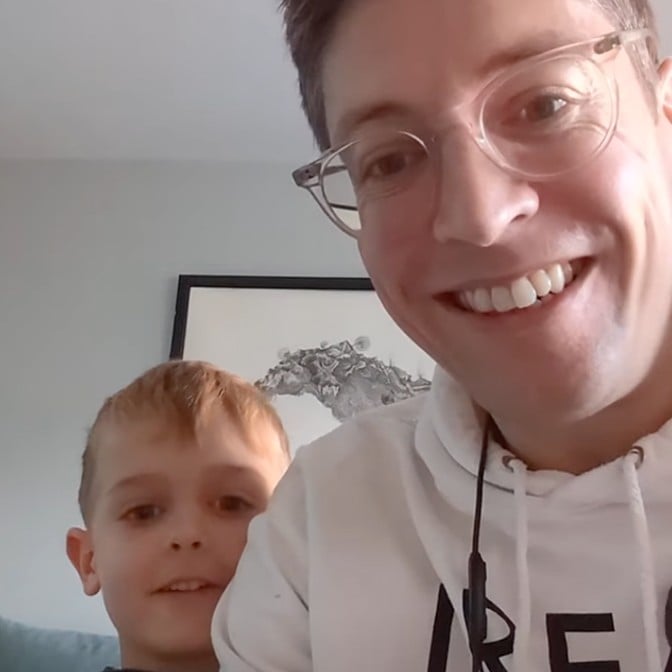Unfortunately, many people see bedwetting as a taboo, which means it’s hard for adults to have frank, open conversations about the topic. For kids, it can be even harder, as they assume they should feel ashamed or embarrassed for having accidents at night.
The best thing you can do is talk to your child about bedwetting, and make sure they feel supported. Having open and honest conversations about bedwetting is very important to helping alleviate their worries, and one way to do so is by talking about your own experiences, if you or someone you know went through the bedwetting phase as a child too.
Bedwetting is very common—and almost every family has a story to tell
Mums, dads, aunties, uncles, cousins and siblings—the chances are, if your child is wetting the bed, someone else in your family will have done so at one point too.
Sharing your story—or that of another family member—can make a huge difference in helping your child through the bedwetting phase. It just takes one person to start the conversation. Because it’s more common than you might think.
Tom shares his story with his son

I wet the bed until I was 8.
We moved house every year and I only stopped wetting the bed when we stopped moving and my parents told me we wouldn't move house again.
As Tom explains, this kind of disruption is a very common cause of or reason for bedwetting. Many experts agree that anxiety, stress and uncertainty can be a trigger for children or teenagers to wet the bed. Even if they’ve been dry for months or years.
This is typically referred to by medical professionals as ‘secondary enuresis’. It’s no surprise then that once Tom felt settled again, he stopped bedwetting. And it’s a story Tom has shared with his own son to help manage his bedwetting.
Sharing your story of wetting the bed can reassure your child
Funnily enough, Tom didn’t even have to start that conversation in the first place…
Having this kind of dialogue with your children can be so important, and opens up opportunities for you to share your own experience with them.
In the video above, Tom mentions that his son “beat” him because he stopped wetting the bed earlier than his dad. This is a sweet moment, and a lovely way to boost Laurie’s confidence. It might even be a way for you to frame it for your child when talking to them about bedwetting.
Talk to your child about your wetting experiences
If you have experienced bedwetting yourself, there’s a chance this means your child’s bedwetting is genetic. This gives you a great opportunity to empathise with and talk to your child about bedwetting.
When you’re ready for an open and honest conversation—and your child seems ready too—here are some points you can make:
About your experience
- When I was a child, I was just like you! I had accidents at night, too.
- I also used to wake up in a wet bed.
- Just like you, I didn’t have any control over it. I just slept right through it and didn’t even know.
- I wet the bed until I was (xx) years old.
- I just had to wait for my body to grow and mature before I eventually was dry all night.
Why they shouldn’t worry
- Someday, you’ll grow out of this too! In the meantime, I think we should keep using your DryNites® Pyjama Pants under your pyjamas. What do you think about that?
- I want you to know this because bedwetting is so common—many other kids experience this just like us.
- The most important thing we can do right now is make sure we talk to each other. I want you to know you can always come to me about this.
- This isn’t a big deal and I know we’re going to get through this just fine.
- How are you feeling about wetting the bed? Is there anything you’d like to talk about?
Sharing your experience can make a big difference
Openly talking about these shared experiences shows your child how common bedwetting is—even among their own siblings, friends or wider family members!
This can provide a huge sense of comfort and reassurance for them and gives them a real-life example of someone outgrowing night-time accidents. Just be sure you take time to let your child talk too.
You might be surprised by what they’re thinking, and letting them share can show you even more ways to be understanding and help support them throughout the bedwetting phase.



 your parenting partner
your parenting partner